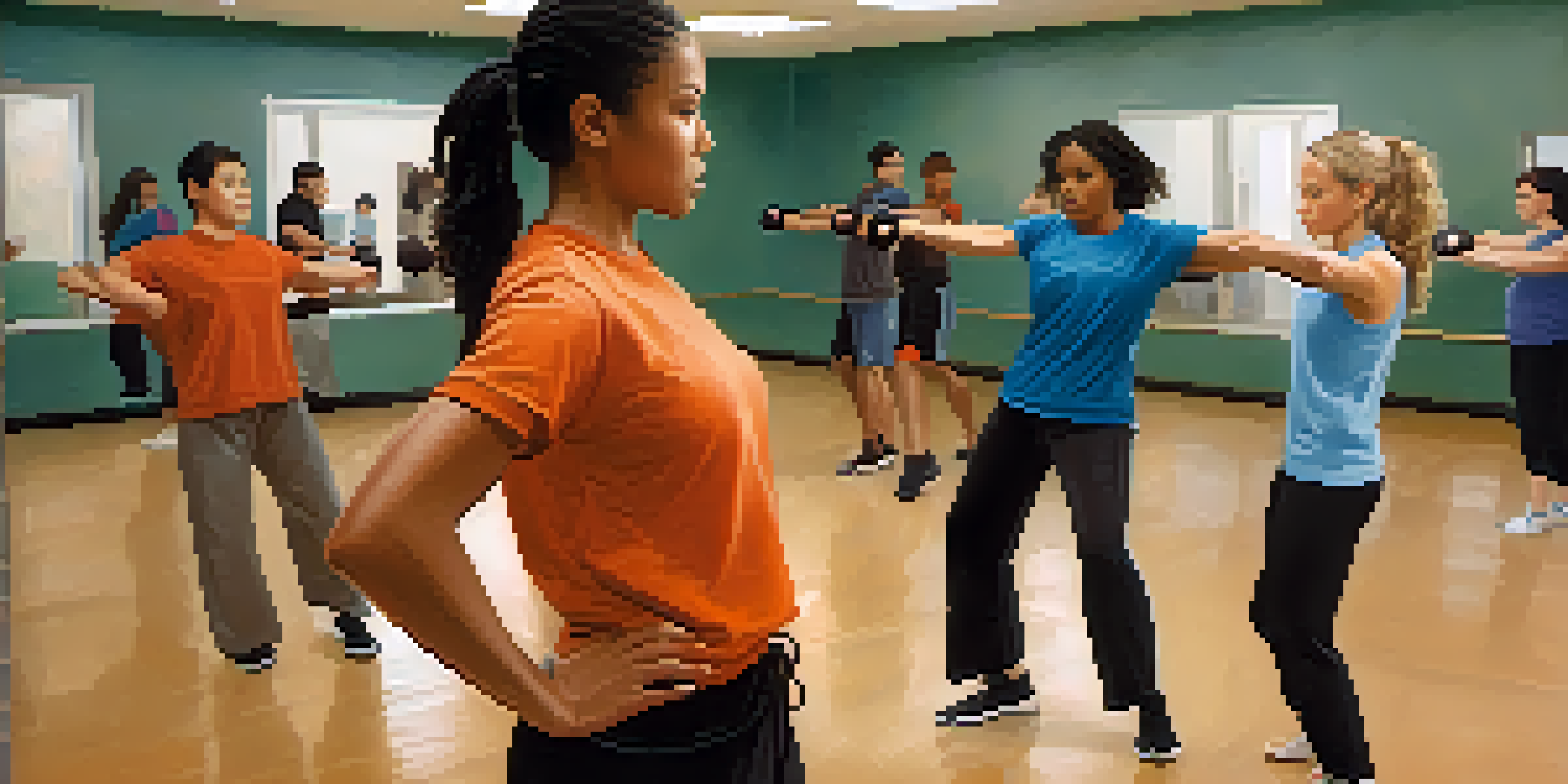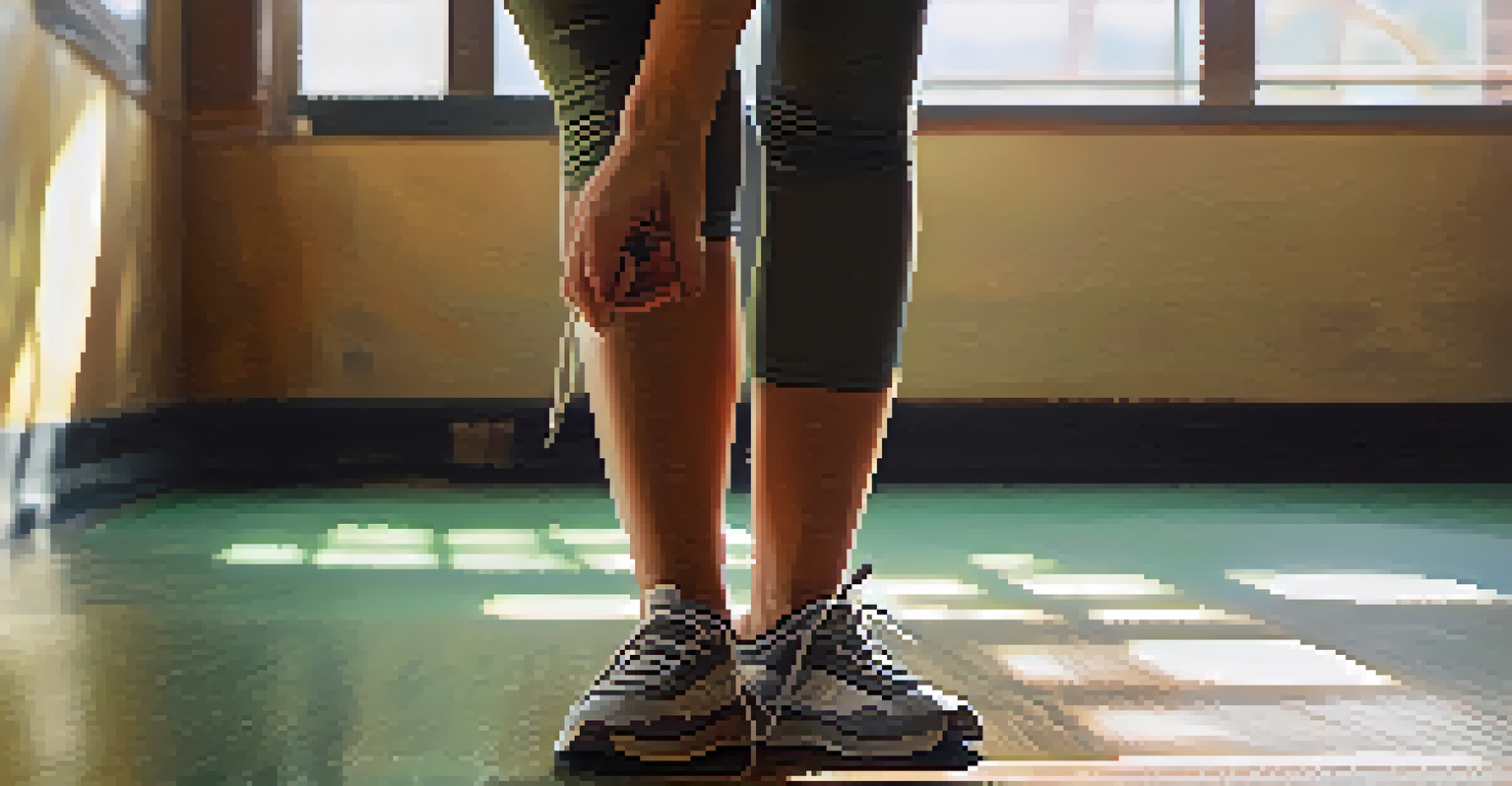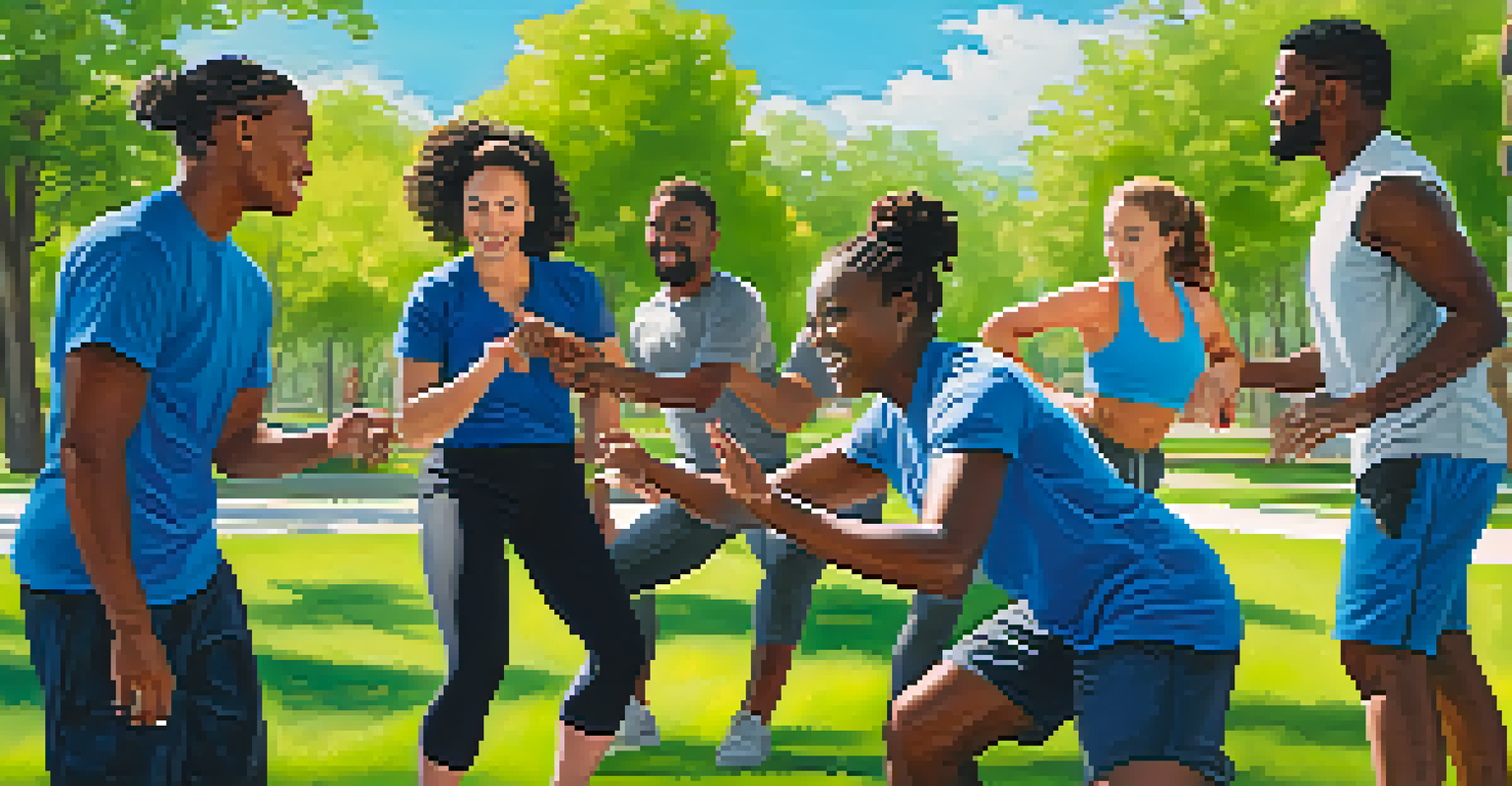Building Confidence: Gender and Self Defense Classes

Understanding Confidence and Its Importance
Confidence is that inner glow that helps us tackle life's challenges. It empowers us to speak up, take risks, and believe in ourselves. Think of it as the mental armor we wear, helping us navigate through various situations.
The most common way people give up their power is by thinking they don't have any.
When it comes to self-defense, confidence is crucial. It not only influences how we react in threatening situations but also shapes our daily interactions. A confident person is more likely to project assertiveness, which can deter potential threats.
Building confidence often starts with learning new skills, and self-defense classes are a brilliant way to achieve this. They provide not just physical skills, but also mental resilience, cultivating a sense of empowerment that resonates beyond the classroom.
The Unique Needs of Different Genders
Every gender faces different societal expectations and challenges. For example, women may often feel vulnerable due to societal conditioning, while men might grapple with pressures to appear strong and invulnerable. Understanding these nuances is essential in tailoring self-defense training effectively.

Self-defense classes designed with gender in mind can address these specific needs. Women-focused classes may emphasize strategies for escaping situations while fostering a supportive community, while men's classes might focus on controlling aggression and developing emotional intelligence.
Confidence Boost through Self-Defense
Self-defense classes empower individuals by building confidence, enhancing their ability to face challenges in daily life.
Recognizing these differences not only enhances learning but also builds a safe space where participants feel understood. This tailored approach can significantly boost confidence levels, as individuals learn in an environment that acknowledges their unique experiences.
Benefits of Self-Defense Classes for Women
For women, self-defense classes serve as a powerful tool for empowerment. Learning how to defend oneself physically can dramatically shift one’s perception of safety and independence. Imagine walking down the street with a newfound sense of security, knowing you can handle unexpected situations.
Courage is not the absence of fear, but the triumph over it.
Moreover, these classes often promote camaraderie among participants. The shared experiences can foster friendships and a sense of community, which enhances emotional support. Women leaving these classes often report feeling more connected to others and more confident in their daily lives.
In addition to the physical skills acquired, self-defense training also emphasizes situational awareness and conflict de-escalation techniques. These skills are invaluable, equipping women with tools to navigate their environments confidently and assertively.
Benefits of Self-Defense Classes for Men
Men, too, can gain significant benefits from self-defense classes. Beyond physical techniques, these classes often challenge traditional notions of masculinity, promoting emotional awareness and vulnerability. This shift can lead to more balanced and healthier expressions of strength.
Participating in self-defense training can help men understand the importance of respect and consent. This education is vital in fostering a culture of safety and awareness, encouraging men to be allies in preventing violence against all genders.
Tailored Training for All Genders
Recognizing the unique needs of different genders in self-defense training enhances learning and fosters a supportive environment.
Moreover, self-defense classes can provide men with coping strategies for stress and anxiety. The skills learned can translate into greater confidence in various life situations, from personal relationships to professional environments.
Creating Inclusive Self-Defense Spaces
Inclusivity in self-defense classes is vital for fostering a supportive learning environment. Classes should welcome individuals from all backgrounds, abilities, and identities, ensuring everyone feels valued and safe. This inclusivity not only enhances the learning experience but also builds stronger communities.
Creating these spaces involves not just physical representation but also an understanding of the diverse experiences participants bring. Instructors should be trained to recognize and respect these differences, adapting their teaching methods accordingly.
When participants feel accepted, they are more likely to engage fully and develop the confidence they seek. An inclusive atmosphere encourages open dialogue, allowing individuals to share their concerns and learn from one another, strengthening the collective experience.
Overcoming Barriers to Participation
Many potential participants may hesitate to join self-defense classes due to fears of inadequacy or past experiences. Addressing these barriers is crucial to ensuring everyone can benefit from the training. Providing clear information about class structures and supportive environments can help ease these concerns.
Offering introductory sessions or workshops can also demystify self-defense for newcomers. These options allow individuals to experience a class without the pressure of commitment, helping them realize that everyone starts somewhere.
Long-Term Benefits of Training
The skills and confidence gained from self-defense training lead to positive changes in personal and professional lives.
Furthermore, sharing success stories from past participants can motivate those on the fence. Highlighting how self-defense training has transformed lives can inspire confidence and encourage more people to take that first step.
The Long-Term Impact of Self-Defense Training
The benefits of self-defense training extend far beyond the classroom. Participants often find that the confidence gained translates into various aspects of their lives, from personal relationships to career advancements. It’s like a domino effect, where one change leads to a series of positive outcomes.
Moreover, the skills learned can foster a proactive mindset. Individuals develop a heightened sense of awareness, making them more attuned to their surroundings and better prepared to respond to challenges. This mindset is invaluable in both everyday life and unexpected situations.

As these individuals carry their skills and confidence into the world, they also become role models for others. By sharing their experiences and encouraging participation, they contribute to a culture of empowerment, inspiring further growth and confidence in their communities.